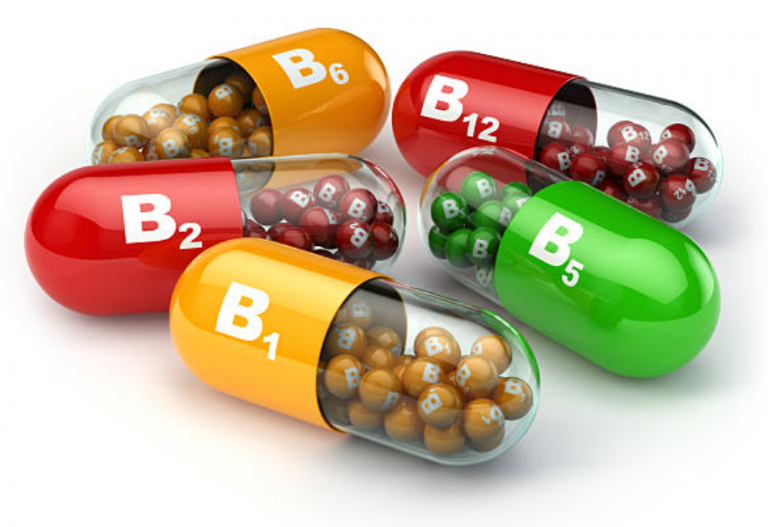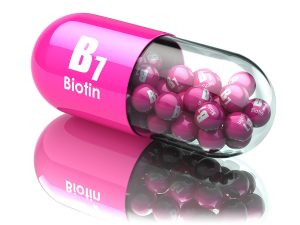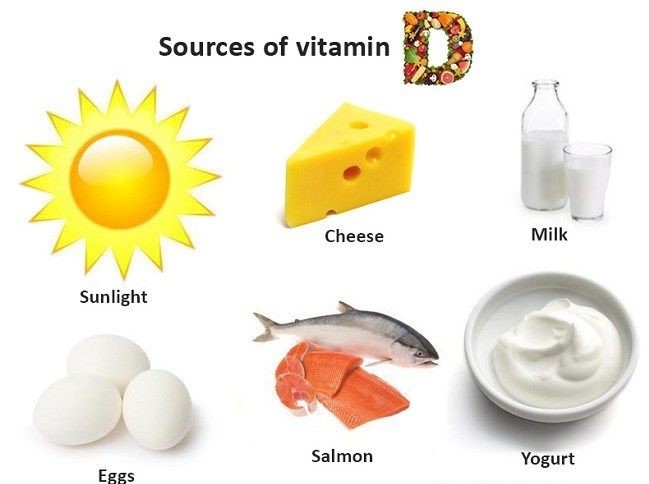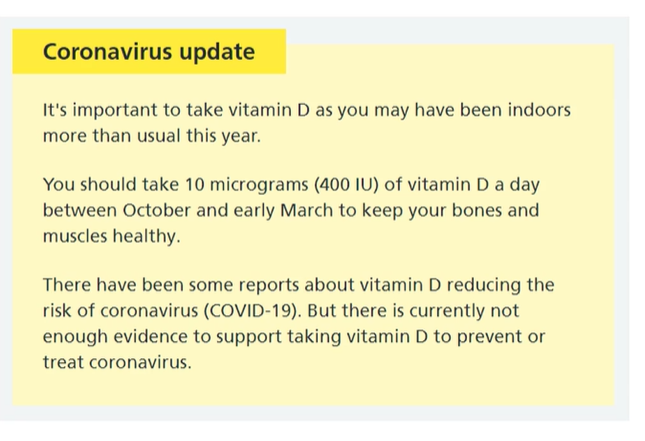
Vitamin Injections
Vitamin Injections
(B12, Biotin, B Complex, D, C, Glutathione)
- After water and oxygen, vitamin B12 is the next essential micronutrient molecule vital for health.
- Vitamin B12 deficiency is common and can manifest at any age and is largely unrecognised.
- Vitamin B12 is crucial for many systems of the body to function correctly.
- Pernicious anaemia is just one illness related to a deficiency in vitamin B12.
- It is believed that vitamin B12 deficiency is not always detectable on blood tests.
- Symptoms such as depression, anxiety and psychosis as well as the early onset of dementia are common with vitamin B12 deficiency.
- Causes of B12 deficiency include genetic disorders, poor diet, gastrointestinal illness or surgery, alcoholism and use of antacids.
- Vitamin B12 is non-toxic – even at really high doses.
What is Vitamin B12
Vitamin B12 is the generic name for a group of compounds based on the cobalamin molecule that has cobalt as the trace mineral at its core. Cobalamin is a highly active complex organometallic molecule. It is the largest and most chemically complex of all of the 13 known vitamins and is generally red in colour. Like other B & C vitamins, Cobalamin is water-soluble, a characteristic that effects how it is absorbed, excreted and stored in the body. Vitamins A, D, E & K are all fat-soluble.
It is classified as a vitamin as it is an essential nutrient for the human body and is regularly obtained from the food we eat. Like other vitamins its role is to catalyse or regulate metabolic reactions in the body. Vitamin B12 plays an important role in the body responsible for hematopoiesis (producing all types of blood cells), neural metabolism, DNA & RNA production, and carbohydrate, fat and protein metabolism. It also helps to improve iron function in the metabolic cycle and assists folic acid in choline synthesis.
Vitamin B12 can only be made by microorganisms, such as bacteria and algae, if the cobalt mineral is available in the soil or water. The main source for humans to obtain vitamin B12 is from the consumption of meat and fish. The vitamin is made by microbes in the digestive tract of animals, where it is absorbed and deposited into their tissues. As well as meat and fish, vitamin B12 can also be obtained by the consumption of cheese, milk and eggs. There are no known sources of vitamin B12 in plants, although some species of seaweed have been found to contain it. Therefore it is quite common to see vegetarians or vegans present with vitamin B12 deficiencies.
Vitamin B12 is absorbed into our tissues through the digestive tract, however this process can be disrupted from poor digestion, intestinal disease or the use of some medications etc. Main causes are due to atrophic gastritis and lack of Intrinsic Factor (IF), a glycoprotein produced by the stomach that is required for the absorption of B12. As well as from poor diet and digestion, vitamin B12 deficiencies can also be affected by a genetic condition such as:
- Pernicious anaemia
- Crohn’s disease
- Treatment with proton-pump inhibitors
- Atrophic gastritis
- Coeliac disease
- Use of antacids (acid is required to release B12 from food)
- Gastrointestinal surgery
- Use of certain medications
- Use of illegal drugs and substances including nitrous oxide
The body systems where B12 is important
Vitamin B12 plays a key role in many body systems and organs and this list is increasing. It is needed for energy production through the Krebs Cycle, for the synthesis of DNA via the folate cycle which affects trillions of cells in the body, and for the expression of genes through epigenetic processes. It affects the proper functioning of the nervous and peripheral systems, mood and cognitive functions and the formation of blood in the bone marrow, skin and mucous membranes, bones, the glandular system, the immune system, the digestive system, fertility and pregnancy and development of the embryo.
Vitamin B12 deficiency consequently manifests as a wide range of different symptoms, some of which appear to be unrelated or may even be misdiagnosed. B12 is fundamental to animal life and metabolism that the symptoms are also widespread.
B12 is responsible for:
- Manufacture and normal function of blood cells.
- It rapidly divides all cells from epithelial cells to bone marrow cells.
- Energy production through the Krebs Cycle.
- Metabolism of fats, carbohydrates and proteins.
- Nerve cell conduction.
- Neurotransmitters.
- Endocrine systems.
- Immune systems.
- Conversion of homocysteine to methionine, then to SAMe (mood enhancing) and amino acids, with effects on many metabolic processes.
- Correct synthesis and transcription of DNA.
- Removal of toxins.
Neuropsychiatric disorders
The earliest symptoms of B12 deficiency and include:
- Irritability
- Mood swings
- Confusion
- Forgetfulness
- Fogginess
- Psychosis
- Hallucinations or delusion
- Depression
- Anxiety/Panic attacks
- Tension headaches
- Onset of dementia
Neurological disorders
- Bells palsy
- Chronic Fatigue Syndrome (CFS)
- Myalgic Encephalomyelitis (ME)
Autoimmune disorders
Autoimmune disorders take many forms, they include overactive immune system disorders when the body’s immune system attacks and destroys its own tissue and underactive system disorders when the body’s defence against disease is reduced. Such disorders are frequent with vitamin B12 deficiency. The list includes:
- Addison’s disease
- Amyloidosis
- Ankylosing spondylitis
- Coeliac disease
- Crohn’s disease
- Dermatomysositis
- Graves’ disease
- Guillain-Barre syndrome
- Hashimoto’s thyroiditis
- Multiple sclerosis (MS-like presentation/SACD (subacute combined degeneration))
- Myasthenia gravis
- Pernicious anaemia/B12 deficiency
- Reactive arthritis
- Restless leg syndrome (RLS)
- Rheumatoid arthritis
- Sjogren’s syndrome
- Systemic lupus erythematosus
- Type 1 diabetes
- Ulcerative colitis
Many of the above conditions have overlapping symptoms, for example fatigue, general ill-feeling, joint pain and rash. Many of these conditions cease to exhibit their symptoms once vitamin B12 balance is restored in the body.
Recommended daily amounts of B12
Please note this table is just for reference, people may not be getting their daily recommended allowance hence they come for a booster but we would never inject babies, children or pregnant ladies following his course due to insurance and pregnancy being a contraindication of the treatment.
| Age/Life Stage | Recommended amount, Micrograms (MCG) |
| Birth to 6 months | 0.4 mcg |
| Infants 7 months – 12 months | 0.5 mcg |
| Children 1-3 years | 0.9 mcg |
| Children 4-8 years | 1.2 mcg |
| Children 9-13 years | 1.8 mcg |
| Teens 14-18 years | 2.4 mcg |
| Adults | 2.4 mcg |
| Pregnant teens and women | 2.6 mcg |
| Breastfeeding teens and women | 2.8 mcg |
How vitamin B12 deficiency is diagnosed
The traditional way of diagnosing vitamin B12 deficiency has been with a serum B12 blood test to determine the patients B12 levels as well as the presence of any signs or symptoms of pernicious anaemia. The problem with this is that many sufferers of a B12 deficiency may not have anaemia or have a serum B12 blood level within an abnormally low range in accordance to the ‘normal’ ranges set. There are no national or international agreements of what a normal range is. The tests can also give false readings where they do not assess the bioavailability of the B12 or whether it is functional of not.
It is therefore better practice to look for trigger symptoms and undertake a one-minute health check to see if a client will benefit from B12 injections.
Key triggers or symptoms of vitamin B12 deficiency are:
- Tiredness
- Depression
- Hair loss
- Pins & needles
- Numbness in the hands or feet
- Tremors or palsies
- Palpitations
- Recurrent headaches
- Dizziness
Contraindications of Vitamin B12
- Allergy to any of the products ingredients
- Pregnancy or breastfeeding
- Liver or kidney disease
- When under close medical supervision at hospital
- Active cancer/undergoing chemotherapy or radiotherapy
- Prone to keloid scarring
Side effects of Vitamin B12
Mild side effects and potential risks, which should be referred to a doctor if they persist or worsen, include:
- pain, redness, or itching at the site of the injection
- mild diarrhoea
- swelling sensation in the body
More serious side effects, which require immediate medical attention, include:
- muscle cramps
- irregular heartbeat
- unusual weakness or tiredness
- swelling of the ankles or feet
Severe reactions are very rare but require emergency intervention. These include:
- itching and swelling of the face, throat, or tongue
- breathing difficulties
- severe dizziness
- sudden vision changes
- slurred speech
B12 Aftercare
Keep the area clean and healthy.
Avoid excessive heat, saunas, sunbeds and swimming pools for 24 hrs. This will reduce the risk of infection
What to expect post injection within hours
- Enjoyment of friends
- Sociability
- Mood improvements
Within a day
- Fatigue lessens (although this can sometimes take some weeks)
- Become more sociable
Within a week
- Brain fog lifts
- Numbness and pins and needles start to remit
Within 2 weeks
- Strength may return to muscles and joints
Within a month
- Pains in hands and feet remit
- Strength and grip improve
- Cyclical hormones such as fertility cycles normalise
- Thyroid and cortisol hormones normalise
What is Biotin?
Biotin is beneficial to everyone, even if you do not have a deficiency. Biotin is vitamin B7, otherwise known as vitamin H. In particular, Biotin supports the metabolic processes, a fancy way of saying that it triggers the reactions needed to turn food into fuel. Biotin also boosts enzyme production, which in turn supports the metabolization of fat and carbohydrates. Biotin injections also support healthy cell growth and the creation of amino acids. Amino acids play vital roles in building up proteins (cell strength), so therefore has a great effect on repairing and maintaining skin, hair and nail health. Biotin is a B-complex vitamin, also known as B7 or Vitamin H. Biotin is necessary for the cell growth and the production of fatty acids in living organisms. Biotin helps release energy from carbohydrates and aids in the metabolism of fats, proteins, and carbohydrates from food. It is also important in the health of your hair, skin, and nails. Biotin can be naturally found in many food sources.
Food Sources – red meat, eggs, nuts, seeds, and some vegetables. Animal-based protein sources include beef and chicken liver, salmon and eggs all have a high biotin content. It can also be found in smaller amounts in vegetables such as broccoli, sweet potatoes, spinach, and many types of nuts.
Signs of Biotin deficiency include:
- Digestive and intestinal tract issues
- Muscle aches and pains
- Brittle damaged hair or hair loss in unusual amounts
- Dry irritated skin
- Chronic fatigue and commonly lacking in energy
- Mood changes
- Cognitive impairments
- Nerve damage
- Cramps and tingling in the limbs
Benefits of Biotin include:
- Aids in healthy sweat glands
- Nerve tissue and bone marrow
- Improves acne and eczema
- Strengthens hair and nails
- Aids in prevention of hair loss
- Improves blood glucose levels
Other Benefits:Promotes healthy metabolism
- Support healthy nails, skin, and hair
- Improves multiples sclerosis
- May reduce blood sugar levels
- Maintains healthy cardiovascular system
Contraindications
Contra-indications of a biotin treatment refer to any condition or disease that is not suitable for a treatment. The list of the following are contraindications that could prevent this treatment:
- Pregnant or breastfeeding women
- Allergic reaction to any of the ingredients
- Under close medical supervision by hospital
- Active cancer, undergoing chemotherapy or radiotherapy
- Keloid scarring or family history of Hypercalcemia
- Hypersensitivity to calcitriol
- Cardiac disease
- Renal failure
Possible Side Effects from excessive intake of Biotin:
- Weakness
- Headache
- Nausea
- Dry mouth
- Constipation
- Abdominal pain
Why Vitamin C?
- Vitamin C is antioxidant and helps prevent oxidative stress
- Works with enzymes to make collagen
- Brightens skin and complexion
- When taken by injection Vitamin C can reach much higher levels in the blood than when taken orally
- Vitamin C is used to treat colds, boost immune,
- Lowers Hypertension
- Guards against heart disease
- Higher dosage by injection over oral counterparts
- Vitamin C is non-toxic, even at high doses
- Can be used to facilitate healing
Vitamin C Injection is also known as Ascorbic acid. It plays an important role to maintain healthy skin, bones, teeth, and cartilage. This vitamin is an essential nutrient to protect cells of the body from damage. Vitamin C Injection acts as an antioxidant. Insufficient amounts of this vitamin can cause scurvy, muscle weakness, joint pain, skin rashes, and tiredness. Vitamin C is important for healthy bones, tissues, veins and help in the production of red blood cells. The disease scurvy which is caused due to deficiency of Vitamin C is treated by supplying enough of the vitamin to the body from external sources. Ascorbic acid is used in such treatment. It also helps in better iron absorption in the body. Vitamin C is a vitamin absorbed by the body from different food sources, mostly from citrus fruits like oranges, lemons, kiwi, papaya etc. as well as smaller amounts in some vegetables. You should not be taking Vitamin C Injection if you have a problem of hemochromatosis or iron overload, or any kind of complications related to kidney stones in the past. Vitamin C injections are safe when taken in proper dosage according to the need of your body. But over-dosage, improper administration, or allergic tendency towards it can produce side effects in your body. Some of the side effects are- nausea, diarrhoea, joint pain, weakness, weight loss, upset stomach, stomach cramps, painful urination, fever, shivering etc. Aluminium present in antacid medicines may react with ascorbic acid hence the client needs to undergo a full consultation and be aware of the dangers of mixing both. Vitamin C works as a coenzyme and reducing agent in a number of metabolic pathways. It is also involved in the conversion of folic acid to folinic acid, tyrosine metabolism, carbohydrate metabolism, iron metabolism, cellular respiration and others. Vitamin C injections are sometimes used off-label for other conditions, including:
- Cancer
- General Health
- Immune Function
- Weight Loss
Off-label drug use means that a drug that’s been approved by the FDA for one purpose is used for a different purpose that has not been approved. However, a doctor can still use the drug for that purpose. This is because the FDA regulates the testing and approval of drugs, but not how doctors use drugs to treat their patients. Learn more about off-label prescription drug use.
Cancer
As early as the 1970s, some researchers were suggesting that using high doses of intravenous vitamin C along with cancer drugs could improve treatment of cancer. Intravenous vitamin C can produce very high levels of vitamin C in the body. Researchers believe that these high vitamin C levels can be toxic to cancer cells without harming the healthy cells of the body. Some researchers also believe that vitamin C might be able to reduce the side effects of cancer drugs. They say vitamin C injections can make chemotherapy work better or prevent some chemotherapy side effects. There is some research that suggests vitamin C injections might help reduce side effects and improve quality of life. More research is needed to determine if vitamin C can help fight cancer. However, the potential benefits of intravenous vitamin C in cancer treatment remains controversial. In a systematic review Trusted Source, researchers found inadequate evidence to determine if intravenous vitamin C was beneficial for cancer treatment.
General health and immune function
Some people receive vitamin C injections for general health or to boost immune function and for convenience. The injection means they don’t have to remember to take a supplement pill each day. It’s true that vitamin C has an important function in the body, but it’s controversial whether taking additional vitamin C — orally or by injection — offers any advantage for people who consume adequate vitamin C in their diet. The research is inconclusive regarding whether vitamin C reduces the chance of developing cancer, prevents heart disease, prevents eye disease such as macular degeneration, or prevents the common cold.
Weight Loss
Vitamin C injection is sometimes used for weight loss. Some research Trusted Source suggests that people who don’t have adequate vitamin C intake aren’t able to burn fat very well. This means that it’s important to ensure adequate intake of vitamin C. However, there is no scientific research showing that taking vitamin C supplements orally or vitamin C injections causes weight loss.
Good sources of vitamin C
- citrus fruit, such as orangesand orange
- peppers
- broccoli
- brussels sprouts
- potatoes
Vitamin C deficiency
Vitamin C deficiency can lead to scurvy. Characteristic symptoms of vitamin C deficiency include:
- Swollen and bleeding gums
- Fatigue
- Poor wound healing
- Joint pain
- Loose teeth
- Coloured spots on the skin
In some cases, signs of scurvy can occur within a month of consuming less than 10 milligrams (mg) per day of vitamin C. Today, scurvy is rare in developed countries. It’s most likely to occur in people who:
- Smoke
- Consume a limited variety of food
- Have nutrient absorption problems
Vitamin C injections are approved by the U.S. Food and Drug Administration (FDA) for treating vitamin C deficiency. They’re also approved for helping to treat serious wounds from trauma or burns. However, vitamin C injections are typically only used when vitamin C levels need to be increased quickly or when poor absorption exists.
Side effects of VITAMIN C Injection
An inappropriate amount of Vitamin C Injection can cause various side effects. This is a list of possible side-effects that may occur due to the constituting ingredients of Vitamin C Injection. These include joint pain, weakness, abdominal cramps, weight loss, and painful urination. Vitamin C Injection is not adequate for the patients having kidney stones and a problem of hemochromatosis. The most common side effects of this drugs are:
- Vomiting
- Nausea
- Back Pain
- Diarrhoea
- Headache
- Flushing
- Skin Redness
- Stomach Cramp
- Stomach Upset
Vitamin C Injection is used if your diet does not provide enough Vitamin C Injection. It can also be used to treat certain conditions caused due to low levels of Vitamin C Injection in the body. However, it would be best to consult your doctor before taking Vitamin C Injection to get maximum benefit. If you stop using Vitamin C Injection too early, the symptoms may return or worsen.
Key highlights of Vitamin C injection
Vitamin C and interaction with alcohol is unknown, if your client is intending to drink alcohol around or just after your injection please ask them to consult their doctor first. Vitamin C injections should not be administered to pregnant women unless ordered by doctor. Studies on pregnant humans or animals are not available. It is likely to be safe to use during breast feeding but again clients must get permission from a doctor. You do not need to give any specific advice for driving.
Contraindications of Vitamin C
Dosing for Vitamin C
For treating vitamin C deficiency, the typical vitamin C injection dose is 200 mg once daily for up to a week. For wound healing, the typical vitamin C injection dose is 1 gram once daily for 5 to 21 days. For off-label uses, a wide variety of vitamin C injection doses have been used. These typically range from 10 to 100 grams. Doses may be given daily or periodically at different intervals.
Vitamin C can interact with some other medications and can make your urine more acidic. In some cases, this can change how your body gets rid of certain medication. This in turn can change levels of some medications in your body and result in decreased effectiveness or increased side effects. Some of these medications include:
- fluphenazine (Prolixin)
- magnesium salicylate (Novasal)
- mexiletine (Mexitil)
- salsalate
There is some concern that high-dose vitamin C might make radiation therapy and some chemotherapy drugs less effective. However, this is controversial, and more evidence is needed. If a client is taking other medications or being treated for cancer, advise them to talk to their doctor before taking high-dose vitamin C injections.
Aftercare
Keep the area clean and healthy.
Avoid excessive heat, saunas, sunbeds and swimming pools for 24 hrs. This will reduce the risk of infection
Vitamin D 
Vitamin D is a fat soluble vitamin that the body can naturally make when exposed to sunlight or from certain food groups
- Some health professionals suggest that we sit in the sunlight for 5-30 minutes each day.
- Worryingly, it is estimated 50% of the global population is affected by Vitamin D deficiency
- Vitamin D regulates the levels of calcium and phosphate in the body. They are required in order to keep bones, teeth and even muscles fit and healthy
- An absence of vitamin D can prompt bone disfigurements, for example, rickets in youngsters, and bone pains brought about by a condition called osteoporosis in adults.
Sources of Vitamin D
Good sources of vitamin D
- Oily fish – such as salmon, sardines, herringand mackerel.
- Red meat.
- Egg yolks.
- Fortified foods– such as some fat spreads and breakfast cereals
Why are we deficient?
Contributing factors of why we are deficient include …
- Lifestyle – We are doing less outdoor activities, or clothing if we cover our bodies less is exposed to the sunlight
- Environmental – air pollution reducing sunlight
- Diet – eating enough vitamin D rich foods
- Age – under 5s
- Pregnant & breastfeeding
- Obesity
Coronavirus update
The government have advised that people should be taking a Vitamin D supplement.
Ergocalciferol Injection is typically administered as a single dose of 300,000 IU (international units) every 3-6 months
- It is important if you are not a prescriber that you work with a prescriber to determined the best dose to give
- 300,000 IU is the full 1ml vial
- 100,000 IU (0.33ml)
- 30,000 IU (0.1ml)
Contraindications of Vitamin D
- Kidney and liver problems
- Pregnancy, breastfeeding
- Active acute treatment
- Allergy to product
- Discretion of prescriber
- Hypercalcaemia, evidence of vitamin D toxicity, hypervitaminosis D
Side effects of Vitamin D
Adverse effects are generally associated with excessive intake of ergocalciferol leading to the development of hypervitaminosis
Aftercare
Keep the area clean and healthy.
Avoid excessive heat, saunas, sunbeds and swimming pools for 24 hrs. This will reduce the risk of infection.
| Vitamin Injections | Price List |
| Vitamin D3 | £40 |
| Vitamin C | £40 |
| B12 | £70 |
| B Complex | £60 |
| Biotin (B7) Vit H | £40 |
| Biotin Fat Burner | £65 |
| Glutathione | £75 |
| Glutathione + Vitamin C | £100 |











